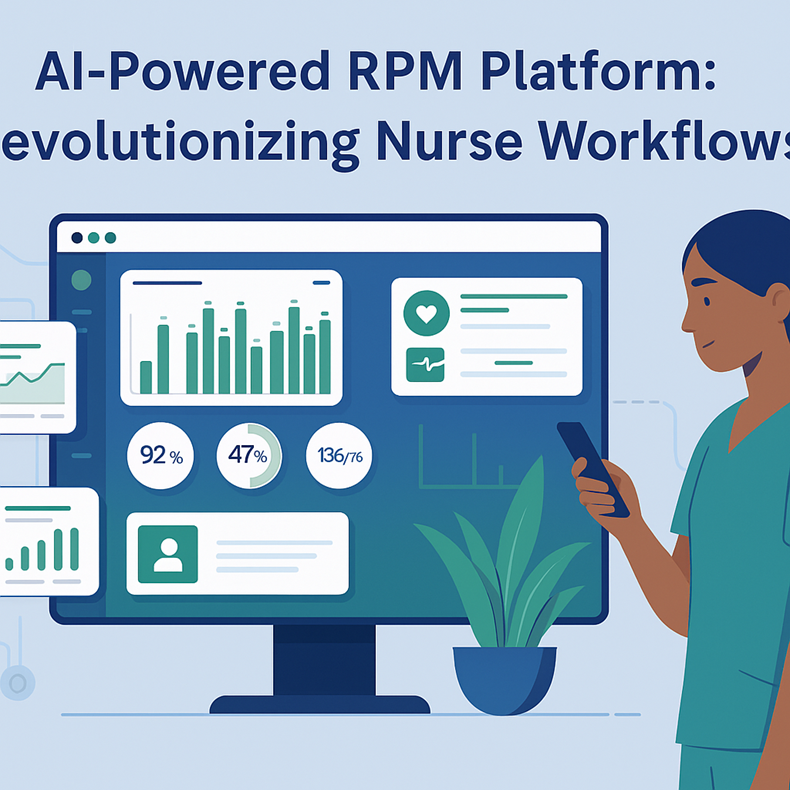
In an era where healthcare systems are burdened with staffing shortages and increasing patient loads, optimizing nurse workflows has become essential. One such innovation, presented by Avani Nandini, introduces a groundbreaking AI-powered remote patient monitoring (RPM) data platform. This platform is designed to alleviate the cognitive burden of alert fatigue among nurses, improving efficiency and ensuring that their time is better spent on direct patient care.
Tackling the Overload of Alerts
In healthcare environments, particularly in intensive care units, nurses face an overwhelming number of notifications daily. With RPM systems being widely adopted to monitor patient vital signs, clinicians often encounter between 100 and 200 alerts per day. A staggering portion of these alerts are non-actionable, leading to what's known as alert fatigue, where even crucial warnings go unnoticed due to the sheer volume of notifications. Studies indicate that as much as 95% of alarms in some clinical settings are false positives. This presents a serious challenge, as missed or delayed critical alerts can result in preventable patient deterioration or death.
The AI-powered RPM data platform combats this issue by using machine learning algorithms to analyze patient data from wearable devices and electronic health records. By filtering and prioritizing alerts, the system ensures that nurses are only notified of significant, actionable events. The platform reduces false-positive alarms by up to 85%, giving healthcare professionals the opportunity to focus on patients who truly need attention.
The Role of Artificial Intelligence in Alert Management
Traditional RPM systems trigger alarms based on fixed thresholds, often generating alerts that may not be clinically significant. In contrast, AI-driven platforms offer a personalized approach, adjusting alerts to each patient's unique physiological patterns and history. This reduces unnecessary alarms for minor, expected variations, easing cognitive load on nurses. Additionally, the AI engine prioritizes alerts and utilizes natural language processing (NLP) to analyze unstructured clinical notes, incorporating context-specific details into the decision-making process. This integration enhances the accuracy of alerts, ensuring that only relevant information interrupts nursing workflows, ultimately improving patient care and workflow efficiency.
Enhancing Clinical Efficiency
Beyond reducing alert fatigue, the AI-powered RPM platform enhances clinical efficiency by enabling real-time monitoring and the early identification of patient deterioration. Through predictive analytics, the system can foresee potential complications before they reach critical thresholds, allowing healthcare providers to intervene sooner. This proactive approach has been shown to reduce hospital readmissions and improve patient outcomes.
Moreover, the platform's real-time monitoring capabilities extend the reach of nurses, allowing them to manage larger patient populations without compromising the quality of care. By optimizing alert management, the platform ensures that nurses spend less time reacting to non-actionable alarms and more time addressing the actual needs of patients.
A Smarter Future for Healthcare
As the platform continues to evolve, future advancements will focus on even more personalized and context-aware care. The next frontier for this technology includes the integration of social determinants of health data, which can offer a broader understanding of a patient's health status and help tailor interventions more effectively. Predictive modeling for conditions like sepsis, cardiac events, and respiratory deterioration is also on the horizon, enhancing the platform's ability to identify patients at risk far before symptoms become critical.
Additionally, mobile-optimized interfaces and voice-activated features are being integrated to reduce the documentation burden on clinicians. This will allow healthcare providers to spend more time with patients and less time on administrative tasks, further optimizing workflows in busy clinical environments.
A Path to Improved Nurse Retention
Reducing alert fatigue and improving nurse workflows not only benefits patient care but also helps address the growing issue of nurse burnout. Research shows a significant correlation between alert fatigue and emotional exhaustion among nursing staff. By creating a more manageable workload and reducing the cognitive strain associated with constant interruptions, the AI-powered RPM platform helps alleviate stress, improving job satisfaction and potentially reducing nurse turnover.
In conclusion, Avani Nandini's proposed AI-powered RPM data platform represents a significant step forward in addressing both clinical and operational challenges in healthcare. Through the innovative use of artificial intelligence, this platform optimizes nurse workflows, enhances patient outcomes, and lays the foundation for smarter, more efficient healthcare systems. As this technology evolves, it promises to be a cornerstone in the future of patient monitoring and clinical decision-making.
ⓒ 2025 TECHTIMES.com All rights reserved. Do not reproduce without permission.




